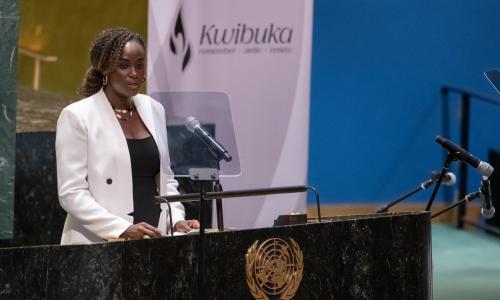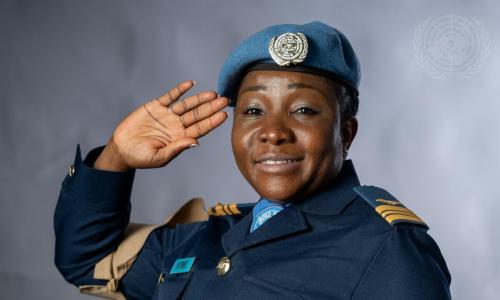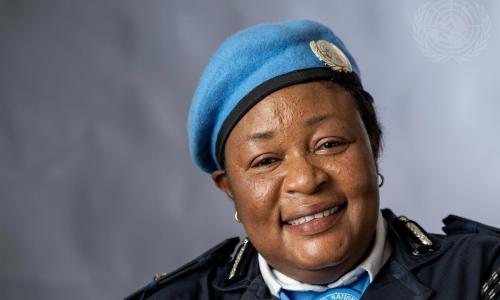“Peace is not a silence you force into people’s mouths,” writes Maryam Bukar Hassan, a Nigerian spoken word artist and poet known as Alhanislam who has become the UN’s first Global Advocate for Peace.
Peace “is not the absence of war; it is the presence of understanding,” she continues in her latest poem “Peace is a verb” written to mark the occasion.
Born in northern Nigeria, Bukar’s childhood was tragically shaped by the insurgency. Forced to move between Borno and Kaduna States, she witnessed firsthand the devastating violence perpetrated by armed groups like Boko Haram. It was in this region, over a decade ago, that nearly 300 schoolgirls, known as the Chibok girls, were abducted by the group; many are still missing today.
“I can remember the first war I experienced was when I was four-years-old,” she says, describing a time when armed men broke into her home.
“They were going house to house and if you were a Muslim, they would bring you out and slaughter you.”
“No child should remember such a thing at age four. They should remember smiles, not that they were almost killed because they were Muslim or Christian.”
Resilience and hope
Bukar’s poem not only captures her lived experience, but it also tells the story of struggle and resilience among people coping with crisis and conflict. It urges people to give peace a chance.
“I wanted to encapsulate the human spirit. People don’t just wake up one day and decide to start bombing each other. It comes from history, from the lack of choice, from resentment. It's the war in the heart.”
For Bukar, investing in peace means addressing the root causes of violence and conflict. She envisions a peaceful world “where world leaders actually discuss how citizens can benefit and grow in their own countries and feel grounded.”
“People don’t have to look over their shoulders when they walk in the streets; people from different cultures speak up for one another; where guns are silenced; where our vulnerabilities are not weaponized; where migration is not seen through a lens of burden but opportunity; where children can actually freely roam the streets and are not being starved; and where we truly learn to trust each other and not live in fear.”
Bukar’s designation comes as the UN turns 80 amidst a world grappling with record levels of human suffering. Last year alone, conflicts led to nearly 50,000 deaths and more than 120 million people were forcibly displaced.
Reports of enforced disappearance, torture, inhumane treatment and other trauma remain widespread. Conflict-driven hunger has reached alarming levels. The UN estimates that, if current trends continue, two thirds of the world’s poor will live in conflict-affected or fragile countries by 2030.
“The dedication of the Global Advocate’s time and energy to this effort will greatly increase awareness of the peace and security priorities of the United Nations,” says Jean-Pierre Lacroix who heads UN Peace Operations.
Representing the UN Peace and Security Pillar, which is made of UN Peace Operations, and Political and Peacebuilding Affairs, Bukar will leverage her influence to support the organization's peace efforts, focusing on advancing the rights and meaningful representation of women and youth through art, storytelling and public advocacy.
“Art has the power to move hearts, inspire action and bring communities together,” says the head of UN Political and Peacebuilding Affairs, Rosemary DiCarlo. “Her voice will be an important partner in amplifying the UN’s efforts to advance political solutions, empower young people and women, and sustain peace.”
Bukar’s message is one of hope which is particularly resonant for young people who often bear the brunt of conflict or feel paralyzed by global crises.
“Feeling overwhelmed doesn't mean that you're powerless, and you're not too small to make a difference. The world may feel heavy but your voice, your choices, your compassion matter so long as we don't give up on showing up in whatever way that we can.”
Learn about the UN’s Peace and Security Pillar.





